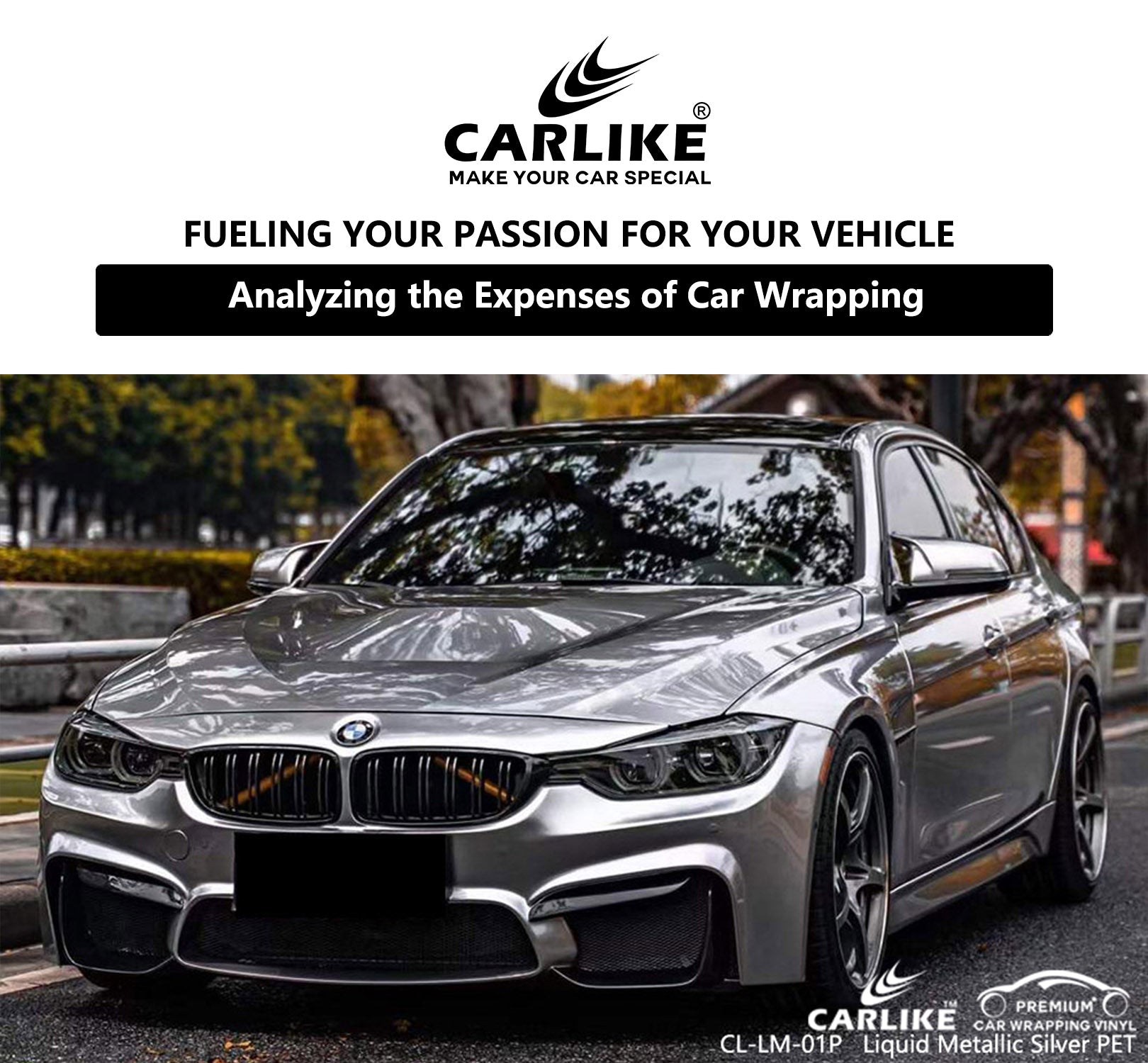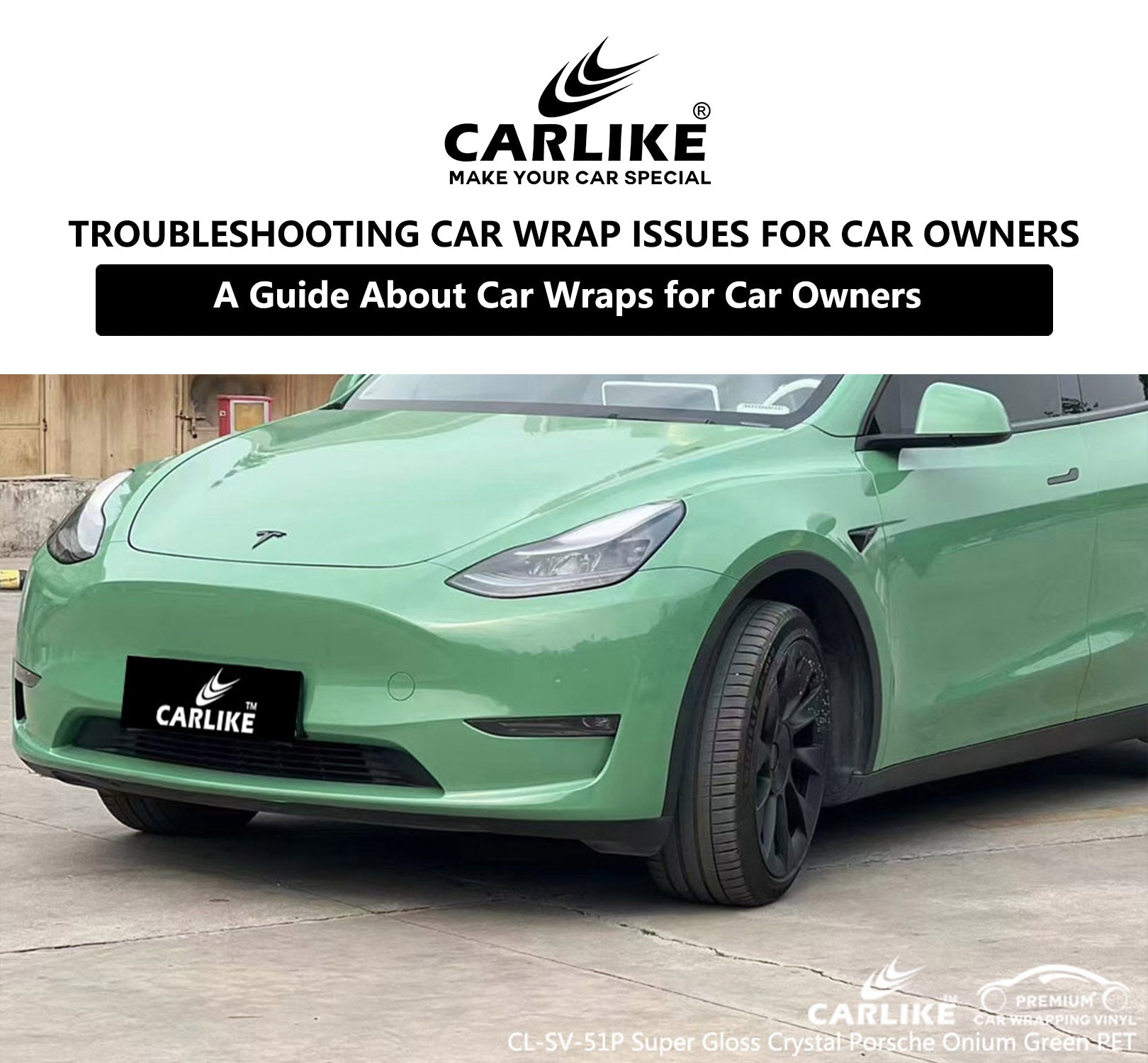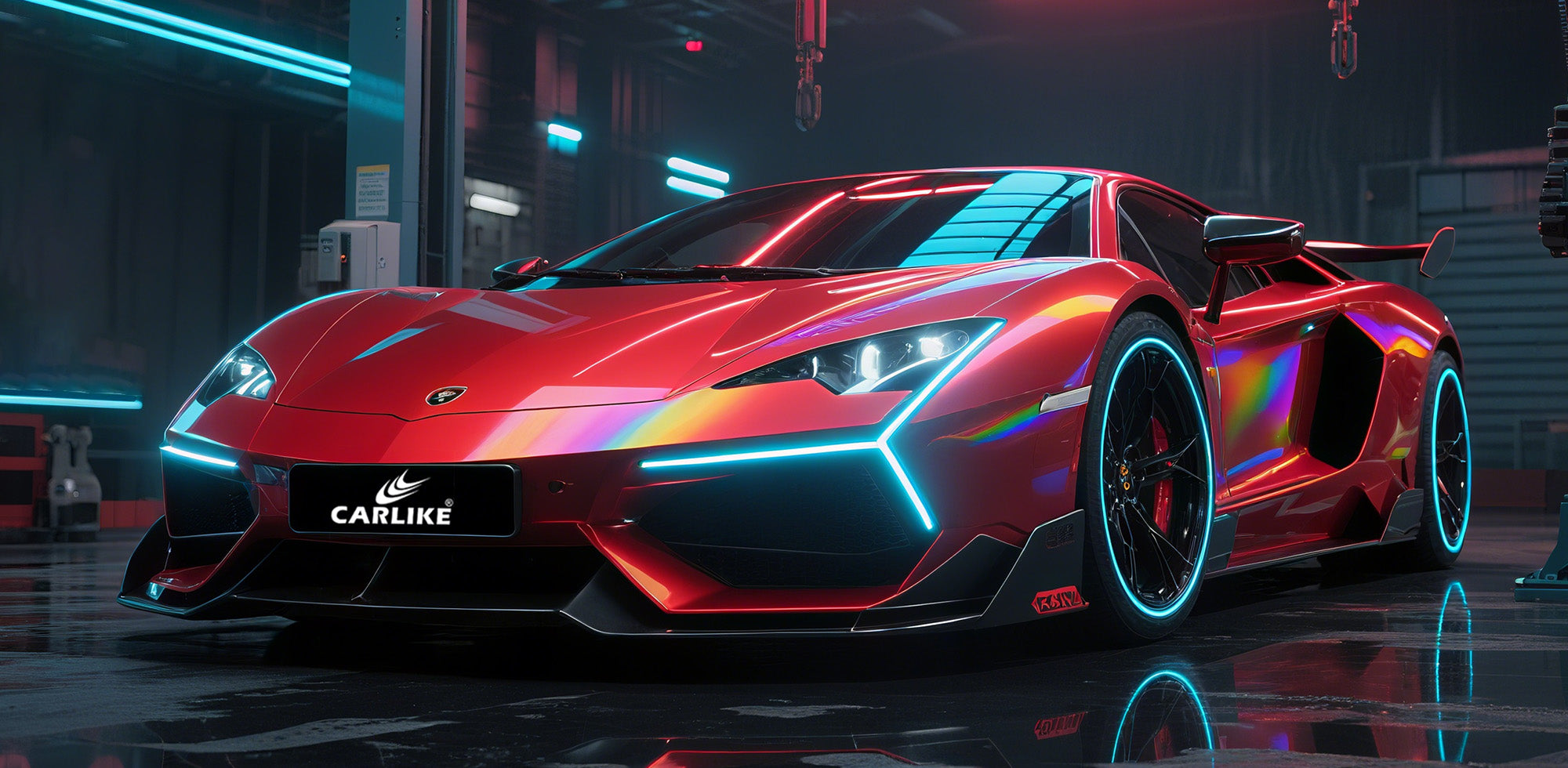The Factors Affecting Car Wrap Costs: Understanding the Variables
When it comes to car wraps, the cost can vary significantly based on several factors. Understanding these variables is essential to have a clear picture of what influences the overall expenses involved in wrapping your car. By exploring the factors affecting car wrap costs, you can make informed decisions and plan your budget accordingly.
1. Vehicle Size and Complexity: The size and shape of your vehicle play a crucial role in determining the cost of a car wrap. Larger vehicles, such as trucks or vans, generally require more material and labor, leading to higher costs. Additionally, complex curves, body contours, and intricate design elements on a vehicle can increase the difficulty level of the installation process, affecting the overall price.
2. Material Quality and Type: Car wraps can be made from various materials, including vinyl, which is the most popular choice. Within the realm of vinyl wraps, there are different quality levels and types available. High-quality materials with advanced features, such as enhanced durability or unique finishes, often come at a higher price point than standard options. The type of vinyl, such as color-change wraps or printed wraps with custom graphics, can also impact the cost.
3. Design Complexity: The complexity of the design you choose for your car wrap can influence the overall cost. Intricate patterns, detailed graphics, or custom artwork require more time and expertise during the design and installation process. Therefore, a more elaborate design may result in higher expenses compared to a simple, straightforward design.

4. Professional Installation: The quality of installation plays a significant role in the longevity and overall appearance of your car wrap. Skilled and experienced professionals may charge higher rates for their expertise, but their precision and attention to detail can ensure a flawless finish. Investing in a reputable installer is crucial to achieve a high-quality result.
5. Additional Services: Additional services, such as surface preparation, paint correction, or removal of existing graphics, can add to the total cost of a car wrap. These services are essential for ensuring a clean and smooth surface before applying the wrap and may require additional time and effort.
6. Geographic Location: The cost of car wraps can also vary based on your geographic location. Prices may differ between urban and rural areas, as well as between different countries or regions. Factors such as local competition, cost of living, and demand for car wrap services can all contribute to regional price variations.
7. Brand Reputation: Reputable and well-established brands in the car wrap industry often charge premium prices for their products and services. Their established track record, quality assurance, and customer support may justify the higher cost for some car owners who prioritize reliability and trust.
It is important to note that while cost is a significant consideration, opting for the cheapest option may not always result in satisfactory outcomes. Balancing the cost with quality, durability, and the reputation of the installer is crucial to ensure a successful and long-lasting car wrap.
By understanding these factors affecting car wrap costs, you can make an informed decision, set a realistic budget, and discuss your specific requirements with potential installers to get accurate quotes tailored to your needs.
Exploring the Average Cost to Wrap Different Vehicle Sizes
When it comes to car wraps, the size of your vehicle plays a significant role in determining the cost of the wrapping process. Different vehicle sizes require varying amounts of material, labor, and expertise, resulting in different price ranges. Exploring the average cost to wrap different vehicle sizes can give you a better understanding of what to expect when budgeting for a car wrap.
1. Compact Cars: Compact cars, such as sedans or hatchbacks, are the smallest vehicle category and typically have the lowest wrapping costs. Due to their smaller surface area, less material is required for the wrap. On average, the cost to wrap a compact car ranges from around $1,500 to $3,000, depending on factors such as the type of vinyl, design complexity, and installer rates.
2. Mid-Size Cars: Mid-size cars, including vehicles like SUVs and crossovers, have a larger surface area than compact cars, which can slightly increase the cost of wrapping. The average price range for wrapping a mid-size car falls between $2,000 and $4,000. However, this range can vary based on the factors mentioned earlier, such as material quality, design complexity, and additional services.

3. Large Vehicles: Large vehicles, such as trucks, vans, or full-size SUVs, have a significantly larger surface area compared to compact and mid-size cars. Wrapping large vehicles requires more material and additional labor due to their size and complexity. Consequently, the cost of wrapping a large vehicle can range from approximately $3,000 to $6,000 or more, depending on various factors.
4. Specialty Vehicles: Specialty vehicles, including luxury cars, sports cars, or exotic vehicles, often require more intricate and customized wraps, which can increase the overall cost. These vehicles may have unique body shapes, curves, or design requirements, necessitating extra attention and expertise during the wrapping process. The cost to wrap a specialty vehicle can range from around $4,000 to $10,000 or more, depending on the specific vehicle and customization needs.
It is important to note that these price ranges are general averages and can vary based on multiple factors, including geographic location, the reputation of the installer, and any additional services required. It is always recommended to obtain multiple quotes from reputable installers to get a more accurate estimate based on your specific vehicle and customization preferences.
While considering the cost of wrapping different vehicle sizes, it is also crucial to evaluate the long-term benefits and value that a car wrap can provide. Car wraps not only protect the original paintwork of the vehicle but also offer opportunities for personalization and branding. Additionally, the quality of the materials used, the reputation of the installer, and the durability of the wrap should be taken into account to ensure a satisfactory and long-lasting result.
By exploring the average cost to wrap different vehicle sizes, you can better plan your budget and make an informed decision when considering a car wrap for your specific vehicle type and size.
Hidden Costs to Consider When Wrapping Your Car
When budgeting for a car wrap, it's crucial to consider not only the visible costs but also the hidden expenses that may arise during the process. Understanding these hidden costs will help you avoid surprises and ensure that you have a comprehensive budget in place. Here are some key hidden costs to consider when wrapping your car:
1. Surface Preparation: Proper surface preparation is vital for a successful car wrap. Before applying the vinyl, the vehicle's surface needs to be thoroughly cleaned, free of any dirt, wax, or imperfections. Depending on the condition of the vehicle's paintwork, surface preparation might involve additional steps such as paint correction, removal of old decals or graphics, or even minor repairs. These preparatory steps can add to the overall cost of the wrap.
2. Removal Costs: If you already have a wrap or graphics on your vehicle that need to be removed before applying a new wrap, there may be additional costs involved. Removing an existing wrap can be time-consuming and may require special tools and expertise. The complexity of the removal process, the condition of the previous wrap, and any adhesive residue left behind can influence the cost of removal.
3. Design Revisions: If you have a specific design in mind for your car wrap but require multiple revisions or changes, it can impact the cost. Designers may charge additional fees for extensive revisions or complex design alterations. It's essential to communicate your design requirements clearly upfront to minimize the need for significant changes during the design process.

4. Additional Graphic Elements: Incorporating additional graphic elements, such as logos, custom artwork, or intricate patterns, can increase the cost of your car wrap. These elements require more time and precision during the installation process, as well as specialized printing techniques or materials, which may come at an added expense.
5. Customization and Detailing: If you desire customized features, such as textured finishes, special effects, or unique color combinations, they may come with extra costs. These premium options can elevate the overall aesthetic appeal of your car wrap but may require higher-quality materials or more intricate installation techniques.
6. Post-Wrap Maintenance: While car wraps are designed to be durable and long-lasting, they still require proper maintenance to prolong their lifespan. This includes regular cleaning, avoiding harsh chemicals or abrasive tools, and protecting the wrap from prolonged exposure to sunlight or extreme weather conditions. Investing in appropriate cleaning solutions and protective products is an additional cost to consider for the ongoing maintenance of your car wrap.
7. Removal and Replacement: At some point in the future, you may want to remove the wrap or replace it with a new design. The cost of wrap removal or replacement should be factored into your budget, as it requires labor, time, and potential surface preparation similar to the initial installation process.
By considering these hidden costs when wrapping your car, you can ensure that your budget is comprehensive and covers all aspects of the process. It's essential to discuss these potential expenses with your chosen installer and obtain a detailed quote that includes any additional services or customization options you require. Being aware of these hidden costs will help you make informed decisions and have a more accurate understanding of the total investment involved in wrapping your car.
DIY Car Wrapping: Is it Cost-Effective or a Risky Endeavor?
DIY car wrapping is an option that some car owners consider to save money and add a personal touch to their vehicles. While it may seem cost-effective at first, there are several factors to consider before deciding whether to undertake a DIY car wrapping project. It's important to evaluate the potential risks and challenges associated with DIY car wrapping to make an informed decision. Here's a detailed exploration of the topic:
1. Skill and Expertise: Car wrapping requires specific skills and expertise to achieve professional-looking results. It involves precise measurements, meticulous surface preparation, and proper application techniques. Professional installers undergo training and have hands-on experience in handling the intricacies of the process. If you don't have prior experience or knowledge of car wrapping techniques, achieving a satisfactory outcome can be challenging.
2. Material Quality: Professional car wrapping companies typically have access to high-quality materials that are specifically designed for vehicle wraps. DIY car wrappers may have limited access to these materials or may unknowingly purchase lower-quality options, which can impact the final result. Lower-quality materials may have shorter durability, lower resistance to fading or peeling, and may not provide the desired aesthetic appeal. Investing in high-quality materials as a DIY car wrapper can add to the cost, reducing the potential cost savings.
3. Time and Effort: DIY car wrapping can be time-consuming and physically demanding. The process involves meticulously cleaning the vehicle, removing any existing graphics or wraps, ensuring proper surface preparation, accurately measuring and cutting the vinyl, and meticulously applying it without any bubbles or imperfections. DIY projects often take longer to complete due to the learning curve and potential mistakes, which can lead to frustration and extended project timelines.

4. Tools and Equipment: Car wrapping requires specialized tools and equipment for proper installation. These tools include heat guns, squeegees, cutting tools, and other application accessories. Investing in these tools can add to the overall cost if you don't already have them. Additionally, without the right tools or inadequate knowledge of their usage, there is a higher risk of damaging the vehicle's surface during the process.
5. Warranty and Support: Professional car wrapping companies typically offer warranties on their workmanship and the materials used. This provides peace of mind in case of any issues or concerns with the wrap. DIY car wrapping projects generally lack the same level of warranty or support, leaving you solely responsible for any problems that may arise.
6. Long-Term Results: While a DIY car wrap may initially look satisfactory, the long-term durability and aesthetics may not match those achieved by professional installers. Professional installers have experience with various vehicle types, contours, and materials, ensuring a seamless and long-lasting finish. DIY wraps are more prone to imperfections, such as bubbling, lifting, or peeling, which can degrade the overall appearance over time.
7. Cost Considerations: DIY car wrapping may seem cost-effective initially since you are avoiding the labor costs associated with professional installers. However, when factoring in the cost of high-quality materials, tools, potential mistakes or do-overs, and the time invested, the overall cost may not be significantly lower compared to professional installation. Moreover, the potential risks of improper installation or damage to the vehicle's surface may lead to additional costs for repairs or redoing the entire wrap.
It's important to weigh the potential cost savings against the risks and challenges of DIY car wrapping. If you have prior experience in car wrapping or are willing to invest significant time and effort to learn the necessary skills, it can be a rewarding and cost-effective option. However, if you're unsure about your abilities or want to ensure a professional, long-lasting result, it's advisable to hire an experienced car wrapping professional who can provide warranties, utilize high-quality materials, and deliver a seamless finish.
FAQ for how much to wrap your car?
Q: What factors influence the cost of car wrapping?
A: The factors that affect the cost include vehicle size, material quality and type, design complexity, professional installation, additional services required, geographic location, and brand reputation.
Q: What types of materials are commonly used for car wraps?
A: Vinyl is the most popular material for car wraps. Different vinyl types and qualities are available, each with varying costs and characteristics.
Q: Are there additional costs besides the actual wrap itself?
A: Yes, there can be additional costs for surface preparation, removal of existing graphics, design revisions, customization, post-wrap maintenance, and future removal or replacement of the wrap.
Q: Is DIY car wrapping cost-effective?
A: DIY car wrapping may seem cost-effective initially, but it requires specific skills, expertise, tools, and high-quality materials. Without experience, there is a risk of unsatisfactory results or damaging the vehicle, which can lead to additional costs.
Q: Does the cost of car wrapping include a warranty?
A: Professional car wrapping companies often offer warranties on their workmanship and materials used. It's essential to inquire about warranties before committing to a particular installer.
Final Words
In conclusion, understanding the cost of wrapping your car is essential for anyone considering this transformative modification. While the price range varies depending on factors such as vehicle size, material quality, and design complexity, it's important to remember that car wrapping offers more than just a change in appearance. It provides a protective layer for your vehicle's original paintwork, customization options, and branding opportunities.
By researching reputable installers, discussing your design preferences, and obtaining detailed quotes, you can make an informed decision and ensure a satisfactory and long-lasting car wrap. So, take the plunge and explore the exciting world of car wrapping, knowing that you have the knowledge to make the right investment for your vehicle.









